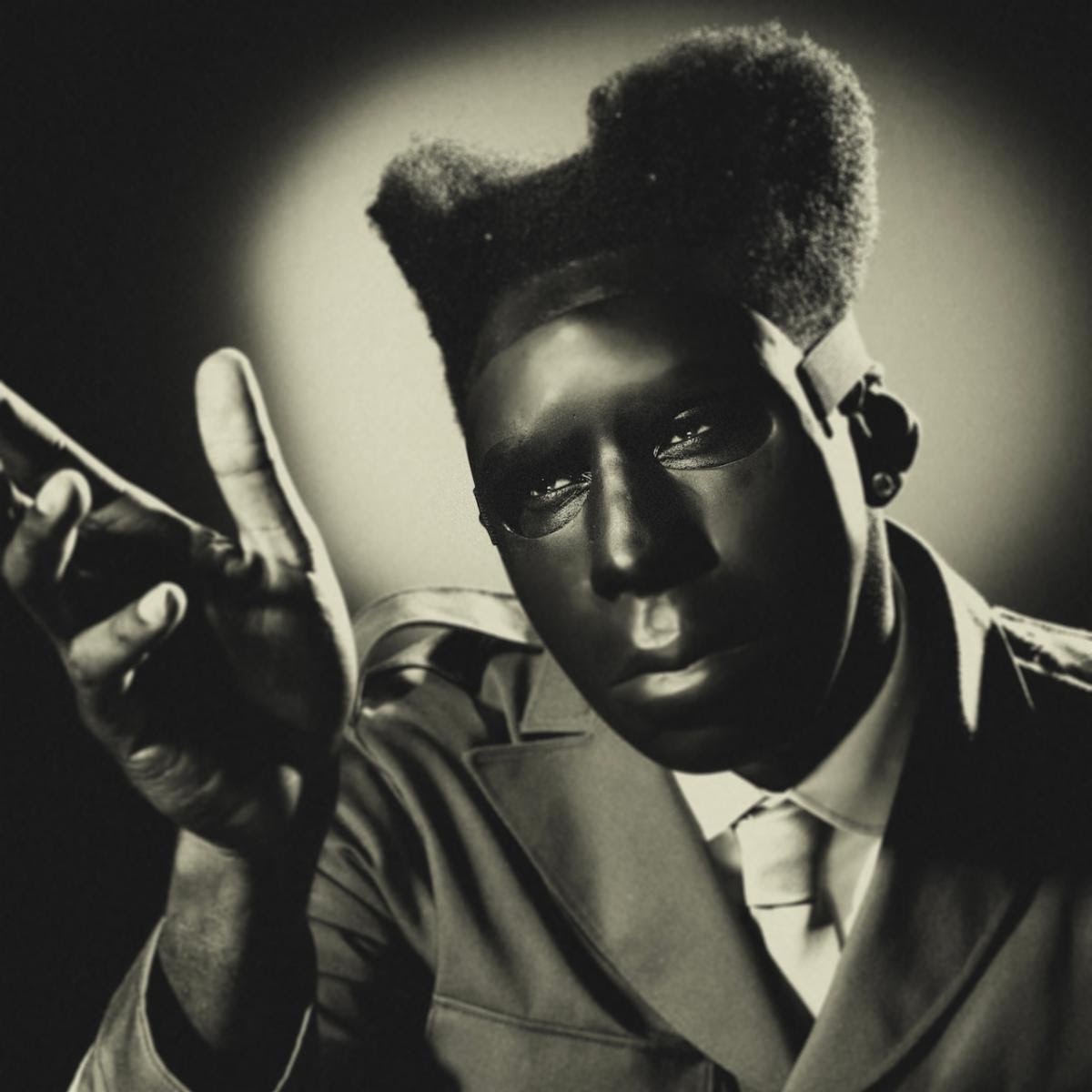Tyler, the Creator
Chromakopia
COLUMBIA
As long as we’ve loved Tyler, the Creator for his unexpected visions and theatrical quirk—a set of stories and images as elliptical as his oblique brand of hip-hop—is as long as we’ve waited for him to peel off the mask. We crave Tyler’s drama, but insist that we know the actor’s motivations. To some extent, Chromakopia responds to that request with its own new set of masks tied to the rapper and producer’s past as well as anxious and resigned ruminations on the aging process.
At 33 years old, Tyler—the eternally youthful, holy goof—is post-middle-aged within the hip-hop continuum, and seems to be looking for a way to explain away his always-absurdist narrative beyond rap, both musically and lyrically. By employing his mother as announcer, greater dollops than usual of jazz and R&B songcraft, and, quite possibly, The Phantom Tollbooth’s extremist conductor Chroma the Great to orchestrate his comings-and-going, Tyler brings listeners back and forth to the uplift of his Inglewood home’s past while studying the downside of his present-day paranoias, all while casting glances to how he believes he’s been observed, fishbowl-style, by fans and media over the years. “Don’t give a fuck about tradition, stop impressing the dead,” he snarks fresh out of the gate.
From there he reaches into raw, wise words of youthful indiscretions on “Hey Jane”—one of pop’s most frank, funny, and loving looks at unexpected pregnancy from both the woman and man’s POVs—and its solo, soulful sister track, album closer “I Hope You Find Your Way Home.” In both of these songs, Tyler can’t help but welcome humor to possibly tragic proceedings, yet never shirks from their import. “Like Him” finds Tyler awash in confusion as to whether he’s in a career of wagging the dog or having the pooch poach him (“Mama, I’m chasing a ghost / I don’t know who he is”). With the gospelish yowl of Daniel Caesar at his side during “St. Chroma” and “Take Your Mask Off,” Tyler wonders what best face to show going forward while confronted by the eternal Black fear of bad hair and the meanings tied to it (“I Killed You”) and singing sweetly the praises of raising a family rather than stay in the rap game (“Tomorrow”).
At each turn and truism—whether tenderly crooned or roughly rapped, whether stoically alone or with a guest crew of features (Lil Wayne, GloRilla, ScHoolboy Q, etc.)—Chromakopia finds Tyler’s past, present, and future called into question by its protagonist. That’s new for him. Being so radically different from his shy but abrasively confident catalog, this album shows off Tyler at his most conflicted and self-challenged. Yet with every confused lyrical struggle within, with every peeled layer and disposed-of mask, a more empowered and more poetically expressive artist shines through, as if being put to the test—any test—has made Tyler, the Creator stronger still. Considering that each one of his new albums brings with it another layer of inventive might, listeners will love hearing Tyler grow older and wiser.







